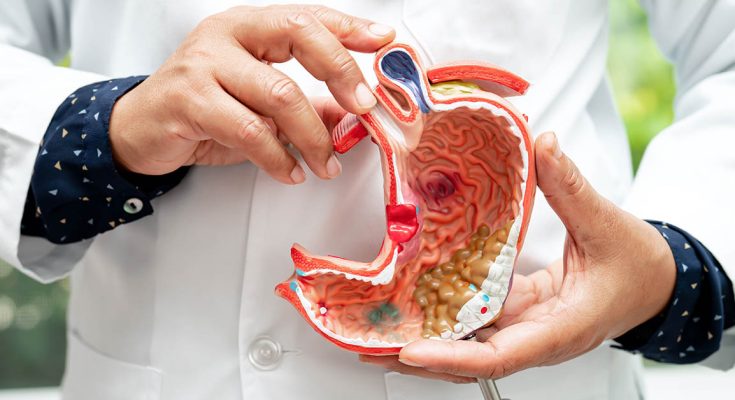Stomach Cancer Often Develops Silently. Here Are 9 Early Symptoms to Look Out For
Stomach cancer is a formidable disease that often develops quietly, making early detection challenging. By the time symptoms become apparent, the cancer may have advanced to a stage where treatment is more difficult. Recognizing the early signs is crucial for increasing the chances of successful treatment. Here are some early symptoms to watch out for.
Understanding Stomach Cancer

1. Indigestion and Heartburn

Frequent indigestion or heartburn that does not respond to usual treatments could be an early sign of stomach cancer. These symptoms are often mistaken for common digestive issues, which is why they may go unnoticed.
2. Bloating After Meals

Feeling bloated or full after eating small amounts of food may also be an early indication. This symptom occurs because the tumor in the stomach can cause physical obstruction, affecting normal digestion.
3. Nausea and Vomiting

Persistent nausea and vomiting, especially if there is blood in the vomit, are concerning symptoms. Blood in vomit may appear bright red or look like coffee grounds and should prompt immediate medical evaluation.
4. Unintentional Weight Loss

Losing weight without trying is a common symptom of many cancers, including stomach cancer. This can result from the body’s inability to absorb nutrients properly due to the presence of the tumor.
5. Fatigue

Chronic fatigue that does not improve with rest could be a sign to watch out for. This fatigue is often due to anemia, a condition caused by the tumor bleeding slowly over time.4
6. Difficulty Swallowing

As stomach cancer progresses, it can cause a narrowing of the esophagus, leading to difficulty swallowing (dysphagia). This is more common when the cancer is located near the gastroesophageal junction.
7. Blood in Stools

Blood in the stool is another alarming sign. Stools may appear black and tarry due to the presence of digested blood, which indicates bleeding in the stomach.
8. Abdominal Pain

Persistent pain or discomfort in the abdomen, particularly above the navel, can be an early symptom of stomach cancer. This pain is often mistaken for a common stomachache.
9. Loss of Appetite
A noticeable decrease in appetite or feeling full quickly after starting to eat can be a symptom of stomach cancer. This can contribute to weight loss and malnutrition.
Risk Factors and Prevention

Several risk factors can increase the likelihood of developing stomach cancer, including:
- Gender and Age: Men and older adults are at higher risk.5
- Diet: High intake of salty and smoked foods and low intake of fruits and vegetables.
- Smoking and Alcohol: Tobacco and excessive alcohol use increase the risk.6
- H. pylori Infection: This common bacterial infection is a significant risk factor.
- Family History: A family history can also increase risk.
Preventative Measures

Preventing stomach cancer involves adopting a healthy lifestyle. This includes maintaining a diet rich in fresh fruits and vegetables, avoiding processed and high-salt foods, quitting smoking, limiting alcohol consumption, and managing H. pylori infections with medical help.
Conclusion

Early detection of stomach cancer significantly improves the chances of successful treatment. Recognizing the symptoms, understanding the risk factors, and taking preventative measures can help in catching the disease in its early stages. If you experience any of the symptoms mentioned, consult a healthcare professional for a thorough evaluation.




